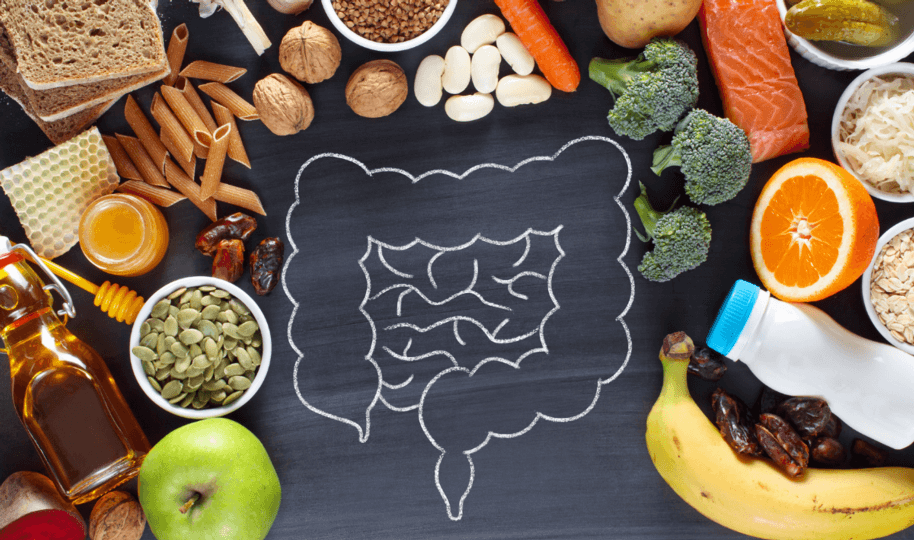
What is irritable bowel syndrome (IBS)?
Irritable Bowel Syndrome (IBS), is a functional bowel disorder which causes chronic or recurrent abdominal…

Scientists believe the gut’s microbiome can either maintain good health or contribute to the management of various diseases. For example, scientists know healthy people have a different mix of bacteria and other microbes compared to people with digestive problems such as irritable bowel sydrome (IBS).
Your gut (AKA large intestine or colon) is so much more than a passageway for your poop; it’s a part of your body that could hold the secret to better health. Your gut houses the largest colony of microorganisms in your body.1 Trillions of them, in fact. They include:
These aren’t the kind of microbes that make you sick. Instead, they’re good bugs that keep you healthy. Collectively, this colony of microorganisms is referred to as your gut microbiome. You have microbiomes in other parts of your body, too, including your mouth and skin.
Even though they’ve only discovered the tip of a vast iceberg, scientists believe the gut’s microbiome can either maintain good health or contribute to the management of various diseases.
For example, scientists know healthy people have a different mix of bacteria and other microbes compared to people with digestive problems such as irritable bowel sydrome (IBS).
Perhaps one of the most exciting discoveries is that your gut microbiome also influences how your brain communicates with your gut and vice-versa. It’s called the gut-brain axis. You’ve experienced the effects of your gut-brain axis when you’ve had the feeling of “butterflies in your stomach” or “a gut feeling” about someone. Your gut-brain axis affects how the nerves and muscles in your digestive tract work and how they, in turn, communicate with the brain.
Learn more about the gut-brain axis in our article What is the gut-brain axis? and how the gut-brain axis can affect your mood in our article Did you know probiotics may help your mood?
However, changes in the health of your microbiome might affect the communication system between your gut and brain. That can alter how the muscles and nerves in your digestive tract work. You might feel more belly pain, or have more diarrhea or constipation.2
Those changes in your gut-brain axis might be related to something called dysbiosis – an unhealthy or unbalanced mix of microbes in your gut microbiome. Everyone has similar types of bugs living in their gut, but over time, things can change. The good bugs can die off, and bad bugs start to take over.
Many things cause changes in your gut microbiome. Antibiotics can kill off the good as well as the harmful bacteria. Stress might also play a role in shaping your microbiome, and your diet definitely plays a part. A Western diet, high in fast food, sugar, refined carbs, and unhealthy fats promotes dysbiosis. Eating more high fiber plant foods and healthy fats from nuts and oily fish can help bring things back into balance.2
In a sense, your microbiome is like a garden full of various types of plants. If you feed, water, and nurture that garden, the plants stay strong. They keep the weeds out with minimal effort. But, if you let things go, and forget to fertilise and water, the weeds will eventually take over. They’ll turn what was once a healthy, thriving garden, into a giant, unsightly mess.
Dysbiosis in your gut might be what triggers different health problems, or it might be an effect of the health problems. There are still many questions, but the more we learn and study, the more answers we get.
The gut is your digestive tract or gastrointestinal (GI) tract. It most commonly refers to your large intestine, but really, your gut is a long tube that begins in your mouth, includes the esophagus, stomach, small and large intestines, and ends at the anus.
Microbes are live microscopic organisms, such as bacteria, yeasts, fungi, protozoa, parasites, and other single-celled organisms found in the human body. There are trillions of microbes throughout your body, but about 70% of them live in your colon or large intestine.
Microbiota refers to the collection of microbes that live in a specific environment, such as your gut. Much of the time, people use the terms microbiota and microbiome interchangeably. Technically, the microbiome includes the microbiota, plus all their genes.
Intestinal flora (or gut flora) is another term for gut microbiota. It refers to the colony of microbes that naturally live and work together in your intestines.
A healthy microbiota or intestinal flora is vital because the microbes living in your gut work together to support your health. They help:
A healthy gut has diverse and significant amounts of beneficial, health-promoting microbes. Dysbiosis is when there is an imbalance in your microbiota, with less diversity and often more unfriendly microbes. Dysbiosis is associated with many health and digestive conditions, including irritable bowel syndrome. It can happen because of: